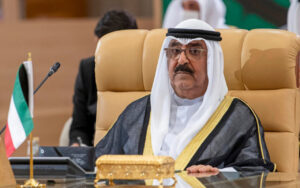Iraq‘s parliament is advancing a bill to amend the country’s personal status law, which would allow Islamic authorities to govern marriage instead of state-secular institutions.
This move would effectively lower the legal marriage age from 18 to 9 for girls and from 18 to 15 for boys.
The bill, having completed its first reading on August 4, needs two more readings and a final parliamentary debate before it becomes law.
If passed, marriages would follow the legal direction of the Jaafari Law School, a Shia Muslim institution that permits the marriage of girls as young as nine, mirroring the marriage of the Prophet Mohammed to Aisha in the 7th century.
Iraq’s personal status law, established in 1959, currently sets the legal marriage age at 18, which can be lowered to 15 with a judge’s permission and depending on the “maturity and physical capacity” of the child.
Since 2014, Islamist parties in Iraq have tried to push for Islamic jurisdiction over marriage three times.
This year, however, they’ve finally garnered enough political support from various factions, which could result in the bill getting passed.
The largest political bloc in Iraq is the Sadrist movement, led by the radical Shia cleric Muqtada al-Sadr, and the Al-Fatah alliance led by Dai al-Amiri.
Both individuals receive financial and armed support from the Islamic Republic of Iran and have been allied with the regime since the fall of Saddam Hussein in 2003.
Child marriage currently remains a serious issue in Iraq. According to UNICEF, 28% of girls are married before 18 and 22% of unregistered marriages involve girls under 14.
“The Iraqi parliament’s passage of this bill would be a devastating step backward for Iraqi women and girls and the rights they have fought hard to enshrine in law,” Sarah Sanbar, Iraq researcher at Human Rights Watch, said.
“Formally legalising child marriage would rob countless girls of their futures and well-being. Girls belong in school and on the playground, not in a wedding dress.”
The push to legalise child marriage in Iraq comes after months after the country criminalised same-sex relationships, the promotion of homosexuality, undergoing or performing so-called sex changes, and the “intentional practice of effeminacy”.
Iraqi lawmakers originally sought the death penalty for LGBT crimes, but a draft bill was amended after opposition from the US and EU nations.
The Law on Combating Prostitution and Homosexuality, adopted in April, mandates at least 10 years, and up to 15 years, in prison for homosexual relationships, seven years for promoting homosexuality or prostitution, and three years for being “transgender” or carrying out “sex change” medical procedures.
The law aims to “protect Iraqi society from moral depravity and the calls for homosexuality that have overtaken the world”, and acting Iraqi parliamentary speaker, Mohsen Al-Mandalawi said it was “a necessary step to protect the value structure of society” and protect children.


























